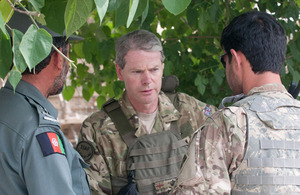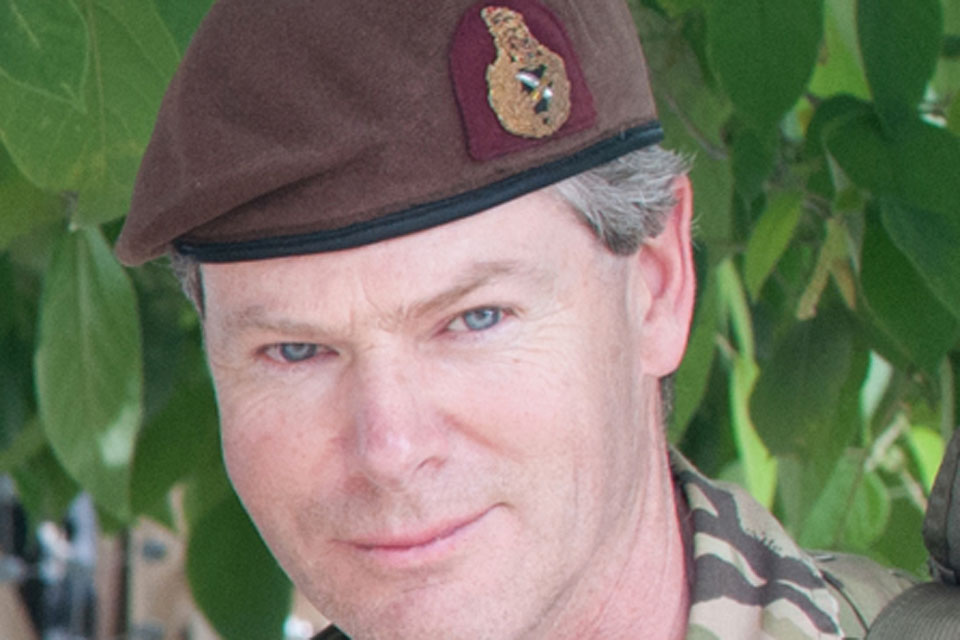ISAF Deputy Commander reflects on progress in Helmand
Lieutenant General Adrian Bradshaw, Deputy Commander of the International Security Assistance Force (ISAF) in Afghanistan, here reflects on recent visits to Helmand and eastern Afghanistan, and gains made by ISAF over the past year.

Lieutenant General Adrian Bradshaw speaks with members of the Afghan National Security Forces [Picture: Crown Copyright/MOD 2012]
Lieutenant General Bradshaw writes:
Last week I was on patrol with British servicemen in Helmand and, as ever, I was deeply impressed by their courage and dedication. With remarkable coolness, they remarked that the area in which we were patrolling is subject to improvised explosive device emplacement by the Taliban.
The servicemen showed me where an insurgent had blown himself up trying to lay a bomb in the track just a few days before. My guides were wary of the risk, of course, and proceeded with understandable caution - but they were also confident in their drills, their equipment and their ability to stay ahead of the threat.
Most importantly, they know they are putting relentless pressure on the insurgents. They stand shoulder-to-shoulder with their Afghan comrades, who are stepping more and more into the lead. The strength of our relationships was very evident during my patrol in eastern Afghanistan last week to visit US-mentored Afghan Local Police (ALP).
Here the ALP block enemy routes from Pakistan, and are frequently attacked by insurgents who resent the restriction on their freedom of movement. As the ALP pointed out to me, they always see off the insurgents. The friendship and mutual trust between ALP village guardians and their US advisors, built through standing together against shared dangers, was obvious and intense.

Lieutenant General Adrian Bradshaw, Deputy Commander of the International Security Assistance Force in Afghanistan [Picture: Crown Copyright/MOD 2012]
In the past year, ISAF have made significant gains. Although by no means defeated, the Taliban are under real pressure. Their attacks are down 11 per cent on last year, and in Helmand, where most of the British forces are, security has expanded into areas which were formerly safe havens for insurgents. Soldiers who were here a couple of years ago say that places which used to be incredibly violent and dangerous are unrecognisably better now.
Despite two recent attacks in Kabul, the first for nearly six months, the life of the capital and the work of government are going on more smoothly than in many a city. The failure of several hundred attempts to attack Kabul over recent months is testament to the efficiency of the Afghan Intelligence Service and security forces in and around the city.
There is much left to do, but we now have more and more reason to believe that the third-of-a-million-strong Afghan National Security Forces really can take the job on - and what’s more, they believe it too. The efforts of British troops in Helmand and our allies elsewhere have had a significant impact. We should be proud of what they have achieved and what they continue to achieve on a daily basis.